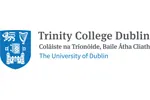About Mechanical Engineering, MSc - at Trinity College Dublin
This course is sponsored by the Erasmus Mundus programme of the EU. The candidate must spend each year in a
different institute and Trinity College Dublin, if chosen, must be attended in the first year (see www.emmme.com). All options are available. It is intended for holders of suitable Engineering or Scientific qualifications who wish to acquire
Engineering degrees recognised in two member states of the European Union. It is tailored primarily for students from outside the EU, who may apply for scholarships to cover their fees and living expenses.
Students from within the EU may also enrol, but are not eligible for scholarships. To comply with EU rules, students holding Irish third level qualifications should not enrol for the options described here, but for the options run entirely by the other partners.
The course is spread over two calendar years from the beginning of October, and requires full-time study. The first year is spent in Trinity College, and the second in one of the partner institutions: the INSA de Lyon and the Escola Tecnica Superior d'Enginyeria Industrial de Barcelona (E.T.S.E.I.B.). To qualify for the award of the degree, students must pass the appropriate course modules offered by the partner institutions. The language of instruction for these courses is the
language of the country.
In Trinity College, in the first year, the following courses are taken by all students: Management for Engineers, Mechanics of Solids and Materials, Thermodynamics and Heat Transfer, Manufacturing Technology and Systems, Control, Vibration and Acoustics. Students then take one subject from the following three options: Fluid Mechanics, Biomechanics, Tribology. Students must also submit an original dissertation of around 30,000 words.
If applicants choose the E.T.S.E.I.B., they will take the following compulsory modules: Diseno de maquinas II,
Tecnologias de fabricacion II, Fabricacion asistida por ordenador, Tecnologia energetica, Simulacion de sistemas
mecanicos I, Proyectos. Students will also take one further module from the following group of options: Fabricacion
flexible, Ensayo de maquinas, Ingenieria de producto y sistemas tecnicos II.
If applicants choose the I.N.S.A., they will take the following compulsory modules: Heat Engines and Practical Works THERTP51; CAM and Practical Works PRODTP51; Advanced Automatic Control and Practical Works AUTOTP41;
Project, Statistics, Discrete Events System and Practical Works AUTOTP41; Practical Works Vibrations of Continuous Structure; Industrial Acoustics; Finite Element Method; and Structural Analysis. Students will also take one further module from the following group of options: Noise of Mechanical Systems; Numerical Modelling of Mechanical Systems; and Automation Engineering.


